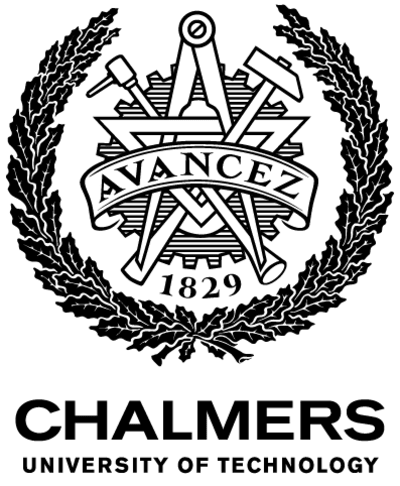
MSc in Industrial Ecology
Chalmers University of Technology

Key Information
Campus location
Gothenburg, Sweden
Languages
English
Study format
On-Campus
Duration
2 years
Pace
Full time
Tuition fees
SEK 160,000 / per year *
Application deadline
Request info
Earliest start date
Request info
* tuition fees for non-EU/EEA students
Introduction
Climate change and environmental impacts resulting from land use, materials, chemicals, and energy are immensely complex issues, placing enormous pressures on the planet and our ways of living. When coupled with rapid social changes and developments in technology, economics, and environmental policy, the demand for expert knowledge and skills in these areas is vast.
By studying industrial ecology at the Chalmers University of Technology, you will contribute to how humanity can face these issues, by analyzing and developing sustainable technical solutions to be implemented by industry, governmental agencies, and researchers. You will contribute to leading humanity to a greener and more sustainable way of living.
This master's program in industrial ecology will equip you with the competencies, knowledge, and tools needed to analyze environmental impacts and resource constraints. You will learn to propose mitigation measures, plan and lead their development, and evaluate and follow up on their effects. This could entail issues relating to product development, land and resource use, energy systems, and large-scale urban planning processes. Industrial ecology offers a solution-oriented engineering approach to environmental and sustainability problems. Graduates of the program will gain a broad understanding of environmental issues, while also becoming experts in the tools of analysis that can lead to the suggestion of relevant measures or policies and informed decision-making.
If you aim for a professional career in a field where you can truly make a difference in promoting sustainable development, then this is the program for you. Encompassing environmental strategy, research, assessment, and more, the scope of this program ranges from traditional, fundamental engineering skills and problems, to changing industrial practices, as well as international negotiations and policymaking. The program welcomes students from all fields of engineering, as well as graduates with other relevant backgrounds such as architecture, environmental science, physics, and chemistry.
You will study the fundamental areas of sustainable development and industrial ecology, as well as elective courses in areas such as the environment, life cycle assessment, and circular economy.
Career
Engineers from the Industrial ecology program have interesting and broad career opportunities. Previous students from the program have continued to work in the industry, environmental consultancy firms, governmental agencies, and research.
- Industry: graduates from the program work for example as environmental strategy analysts, project leaders at environmental divisions, and in technology development. Examples of industrial sectors include energy, automobile, furniture, green buildings, and the process industry.
- Environmental consultancy firms: e.g. life cycle analysis, systems analyses of energy resources and waste.
- Governmental agencies: e.g. Swedish Energy Agency, Swedish Environmental Technology Council.
- Research: Several students have also continued within academia both at Chalmers (Physical Resource Theory, Environmental Systems Analysis, Energy Technology, Logistics and Transportation, Shipping, and Marine Technology) and other internationally known institutions.
General entry requirements
A Bachelor's degree in Science, Engineering, Technology, or Architecture
To fulfill the general entry requirement for a Master's program at Chalmers (at advanced level/the second cycle), the prospective student must hold a degree that is equivalent to a Swedish Bachelor's degree (minimum 3 years, 180 Swedish higher education credits) in either Science, Engineering, Technology or Architecture.
- All applicants must document their formal academic qualifications to prove their eligibility. Only documentation from internationally recognized universities will be approved by the Swedish Council for Higher Education which manages the website universityadmissions.se.
- If an applicant is also a holder of a second degree such as a Master's degree, that may be to fulfill specific (course) requirements, it cannot be used to fulfill the general entry requirement on its own.
In your final year of Bachelor's Studies
Students in their last year of studies who don't yet have documentation of their soon-to-be-completed degree can be accepted.
Restrictions
Degrees that are constructed on one another cannot consist of the same course
Applicants who fulfill the general entry requirements for the second cycle (master’s level) programs and eventually specific entry requirements can be admitted to a master’s program. Applicants cannot be evaluated as unqualified in the qualifying academic merits which include courses from the program’s plan in those programs that they have applied for if that occurs.
Courses included in an earned first cycle degree (bachelor’s level) or professional qualification of at least 180 cr. (180hp) or the equivalent foreign qualification that are prerequisites for master’s qualifications may not be included in the higher qualifications. This also applies to prerequisite courses for master’s programs, regardless of whether they are included in the underlying qualification. *
*) Local Qualifications Framework for Chalmers University of Technology - first and second cycle qualifications.
Restrictions for Citizens from the Democratic People’s Republic of Korea (North Korea)
Chalmers cannot admit applicants with citizenship of the Democratic People’s Republic of Korea only to any program or course, due to the Council Regulation (EU) 2017/1509 of 30 August 2017 concerning restrictive measures against the Democratic People's Republic of Korea and repealing Regulation (EC) 329/2007.
For applicants with double citizenship of which one is of the Democratic People's Republic of Korea and the other of another country, the citizenship of the other country has precedence in this respect.